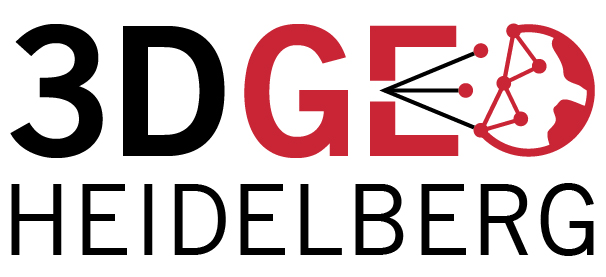Tag: social media
-
Best Paper at ACM SIGSPATIAL GeoCrowd Workshop for our paper on Transport Flow Analysis from Social Media Data
Our paper titled “Explorative Public Transport Flow Analysis from Uncertain Social Media Data” in the GeoCrowd 2014 workshop of the ACM SIGSPATIAL conference has been selected by the workshop organizers as its best paper. In this paper, we propose a framework to detect human mobility transportation hubs and infer public transport flows from unstructured georeferenced…
-
GIScience HD @ Intergeo
In addition to our previously announced presentation, the GIScience group Heidelberg is also represented with a stand at the Intergeo. We present a variety of outcomes of our efforts from throughout the last years. These include, among others, spatial media analysis, OSM.3D and our highly recognized OpenRouteService or OpenMapSurfer.. Our stand is part of the…
-
Keynote on VGI & Social Media for LBS at International Conference on Location Based Services 2015
The 12th International Symposium on Location Based Services 2015 (LBS 2015) will take place this year in Augsburg (Germany), on Sept. 16-18, 2015. Prof. Dr. Alexander Zipf is one of the invited keynote speakers and will give a talk about “Enriching Location Based Services with VGI and Social Media” on Thursday, 17/Sep/2015 (1:45pm – 2:30pm).…
-
Talk “Mixed-Scale Spatial Autocorrelation” in Osnabrück
Last Tuesday, René Westerholt gave a talk about the assessment of spatial autocorrelation within social media data. It was part of the regular colloquium of the Institute for Geoinformatics and Remote Sensing at Osnabrück University. The talk provided an overview of challenges that occur due to the spatially and semantically mixed nature of social media…
-
An Advanced Systematic Literature Review on Spatiotemporal Analyses of Twitter Data
Recently an Advanced Systematic Literature Review on Spatiotemporal Analyses of Twitter Data has been conducted and the results have been published online as journal article. This article presents a systematic literature review on the state of research concerning methodologies, applications and use cases of Twitter as a Location-Based Social Network. The proposed systematic literature review…
-
Combining Social Media and Authoritative Data towards identifying useful Information for Disaster Management
A Study on the Twitter usage in the River Elbe Flood of June 2013 In recent years, social media emerged as a potential resource to improve the management of crisis situations such as disasters triggered by natural hazards. Although there is a growing research body concerned with the analysis of the usage of social media…
-
New ways in analysing multi-scale datasets
Many user-generated datasets (e.g., social media) reflect a number of different phenomena. Consequently, these datasets also comprise very different spatial scales. It goes without saying that this evokes tremendous challenges when conducting spatial statistical analyses of such datasets. When assessing spatial autocorrelation among the observations, for example, classical approaches are usually not appropriate. These were…
-
GIScience in China – Visits in Wuhan and Shanghai
End of March and early April Prof. Alexander Zipf from GIScience Heidelberg was invited to give some lectures at the State Key Laboratory for Information Engineering in Surveying, Mapping and Remote Sensing (LIESMARS) at Wuhan University and also at the School of Surveying and Geoinformatics at Tongji University in Shanghai, China. The presentations were about…
-
A Local Multi-Scale Spatial Autocorrelation Measure for Social Media Datasets
Some time ago we reported about a new method for assessing spatial autocorrelation among points in social media datasets. A major contribution thereby is the ability of restricting the analysis to specific scales limited by both, an upper and a lower bound. The corresponding paper is now officially available online at IJGIS: Westerholt, R., Resch,…
-
In the News: “Urban Emotions” Project
The DFG research project Urban Emotions was mentioned in an interview of the regional newspaper Rhein-Neckar-Zeitung (in German only). The project aims at the development of a methodology to extract contextual emotional information for spatial planning based on real-time people-as-sensors and crowdsourcing approaches within social media. It is a collaborative project between ZGIS Salzburg University,…
-
You can follow us also on Facebook or Twitter
We whish you the most happy and successfull New Year! Now you can follow the news from our GIScienceBlog about recent results and activities in Geoinformatics and GIScience also via Facebook or Twitter – just as you prefer. Hope you like it 😉 Of course you still can use the RSS-Feed, too. Enjoy reading. All…
-
A local scale-sensitive indicator of spatial autocorrelation for assessing high- and low-value clusters in multi-scale datasets (e.g., social media datasets)
Georeferenced user-generated datasets like those extracted from Twitter and similar social media feeds are increasingly gaining the interest of spatial analysts. Such datasets oftentimes reflect a wide array of real-world phenomena. However, each of these phenomena takes place at a certain spatial scale. Therefore, user-generated datasets are of multi-scale nature. Such datasets cannot be properly…


